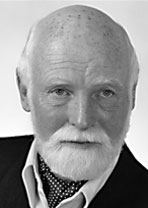Teamology
From DesignX Wiki
Contents |
DESIGN IS COLLABORATION
Much attention has been devoted to the "design process" as part of this collaborative effort. However, relatively little attention is paid to the single most important element of the process: the "design thinking" style of the individual team members.
Softward and product design teams are often formed with participants from different backgrounds with very different knowledge bases, cognitive skill sets and decision-making preferences. The impact of these differences can be a source of both advantage and disadvantage. The fusion of individual cognition and team diversity we call
Teamology seeks to understand how team members with varying cognitive preferences share information and make decisions. In addition, we will explore several interventions that may improve information sharing and decision making within cognitively diverse teams. From this, we will achieve a new and deeper understanding of how to form individuals into successful collaborative.
RESEARCH
Teamology: The art and science of successful team design is a research project funded by the HPI-Stanford Design Thinking Research Program. <a href="http://www.stanford.edu/dept/SUSE/SEAL/Staff/rich_shavelson.htm"><b>Dr. Richard Shavelson.</b></a> is the Principal Investigator.
The goal of this research is to develop a repeatable method for forming effective design teams. We have assembled the following data for analysis:
- 100 subjects - graduate design students
- organized into 15 culturally-diverse teams
- across 9 universities in 7 countries
- working on a range of design projects for corporate customers
- each subject has completed four cognitive style assessment instruments: Meyers-Briggs (MBTI), Hermann Brain Dominance Indicator (HBDI), Kirton Adaption-Innovation (KAI) and Big Five (TIPI)
Team satisfaction, team leadership, and project completion data were collected as the dependent variables and are currently rated and analyzed.
RESULTS
We find that students with similar backgrounds and experience level reveal a wide variety of cognitive problem solving preferences. We also find that overall cognitive diversity does not appear to correlate with overally team project performance. However, team project performance positively correlates with team level "social sensitivity," the cognitive ability to relate to other team members' problem solving preferences. Finally, cognitive diversity correlates with neither individual nor team level satisfaction, indicating that cognitive differences may be successfully accommodated over the life of the project. For a copy of the complete study, click on this link.
DOUG WILDE
"Before diverse team members can be integrated into a cooperative unit they must not only cultivate an opennes to opposing opinions but also recognize the value of exploring a problem from various angles. Sharing personality information about each other facilitates this essestial awareness."
Wilde, D. (2010, February).

